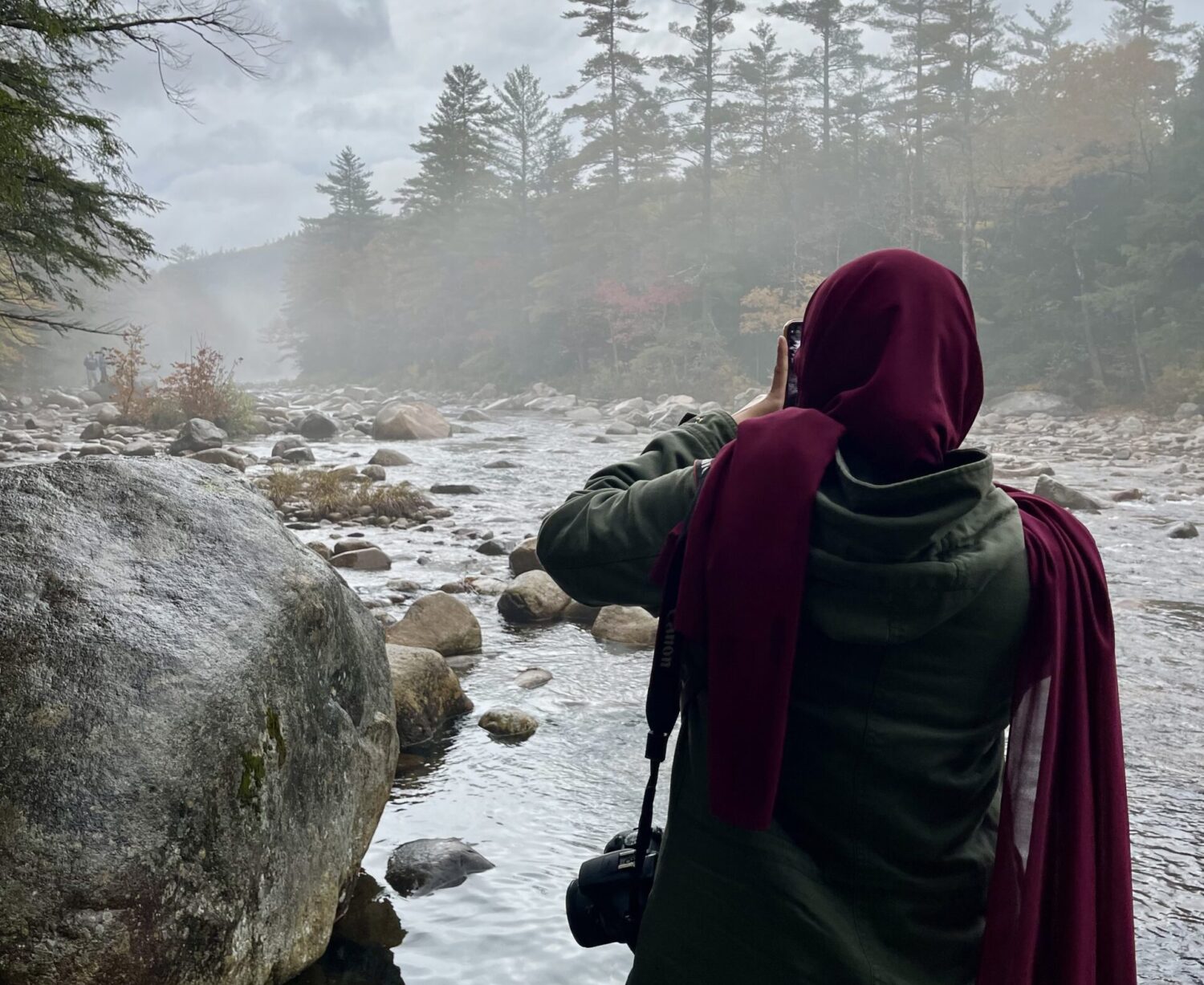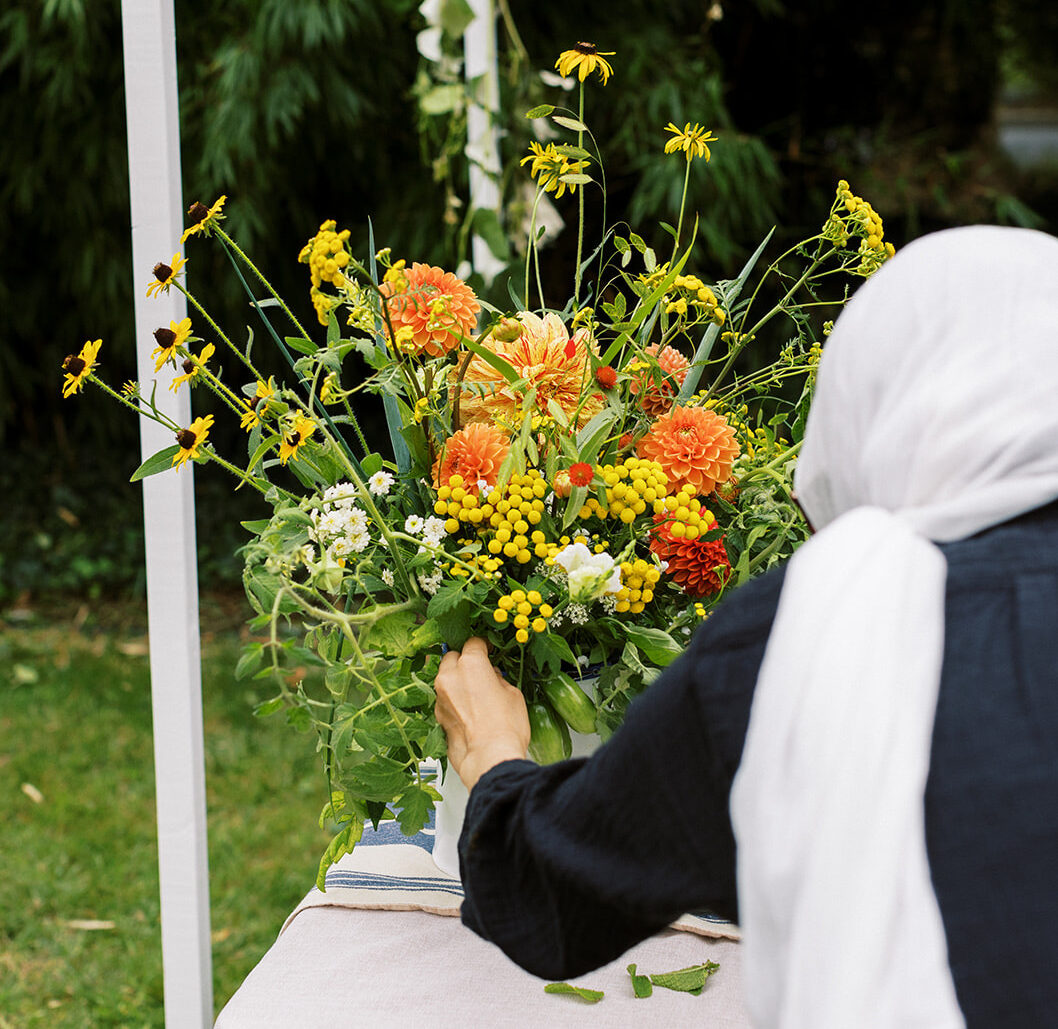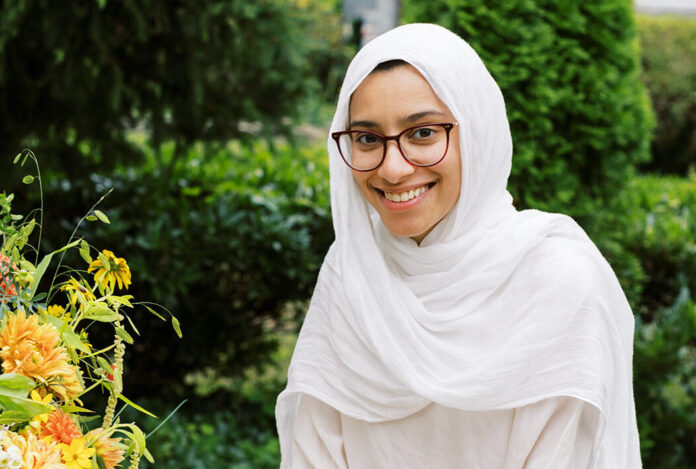Before founding The Nomad Social, Nabiha Rahaman-Çam faced a pivotal decision that would shape her career path. Her commitment to sustainability and her talent for designing memorable gatherings initially seemed at odds, as it was challenging to balance eco-friendly practices with the demands of event production. However, these dual passions eventually converged into a business model that champions low-impact events, advocating for reduced plastic consumption, a smaller carbon footprint, and the creative reuse of decorations.
Nabiha’s work resonates especially within South Asian and Middle Eastern communities, where cultural celebrations often carry a heavy environmental toll. With a BA in Sustainability Studies from Hofstra University, her expertise is well-rounded—not only shaped by academic training but also by a lifelong commitment to promoting eco-conscious practices in spaces that often lack them.

Her parents, both business owners, provided her with early insight into the entrepreneurial mindset. Her interest in environmentalism also began early when her 8th grade science teacher would show her class nature documentaries. These interests surprisingly worked together when she was thinking of a business venture she could throw herself into. Her endeavors, though varied, all tie back into design and the arts— she did her thesis on the fashion industry, and had a stint as a social media marketing manager at a sustainable fashion company. Besides the outright positive effort from a select few companies, she noticed just how wasteful the fashion industry was as a whole. This same observation applied to the events planning industry.
“It started clicking in my head,” Nabiha says. “I’m South Asian and I noticed people from the east— like South Asians, Middle Easterners and East Asians— their parties are really wasteful… and materialistic. I was like, how do I go about this?” In going about the culmination of her small business, she knew this would be a stumbling block. Educating minorities within the Muslim community on the subject would be one her priorities, as well as addressing her own standards for her business:
– Educate and consult clients openly on budgeting.
– Lower her businesses and client’s carbon footprint by sourcing local sustainable vendors, lowering food waste, not having multiple events/outfits, and ordering from local designers.
– Purchase reusable and biodegradable items for decor and dinnerware.
– Source local seasonal flowers and not imported or plastic flowers. Plastic flowers usually get tossed, and are toxic to the environment as they don’t break down easily in landfills. Imported flowers are also grown with harmful pesticides and have a high carbon footprint.
– Plan a unique and memorable experience that focuses on quality over quantity, rather than just having ‘another event.’
– Not take any clients outside of the tri-state area
Nabiha, who is Bangladeshi and based in New York, would go about this in a varied way. While a lot of event planners will travel for a fee, she rebuffs taking a flight for an event or clients. “I know it might hurt me financially, but… I don’t want to have a high carbon footprint. I also want to give business to other small businesses within that region. So I’ll just direct them to (those).” By referring people far away from her home base of Long Island, she ethically helps other sustainably-minded people.
Supporting other local businesses is the crux of her business standards. “I try not to work with vendors that get flowers shipped all the way from, for example, South America, because they’re grown with pesticides.” Shipping the flowers themselves increases the operational carbon footprint, and the events industry is already responsible for over 10% of global CO2 emissions. Day flowers grown in Colombia and flown to the U.S., for example, produced some 360,000 metric tons of CO2 in a recent estimate. “I try to educate people,” Nabiha says. “(If) you’re getting married, or you have a birthday party, graduation, wedding, whatever it is… focus on more local and seasonal items. That’s gonna cost you so much less, and you’re not gonna get exactly what you want, but it’s gonna be really close, and it’s very possible.”

Despite numerous attempts by others to influence her stance, she remains resolute in upholding her self-imposed principles. Her business is driven by a deep commitment to ethical Islamic values and moral integrity, which serve as the core foundation of her motivations and decisions.“I was doing a lot of research (on Islam) when it comes to sustainability,” she says. “I learned so many things about our religion. That was so shocking to me, in a good way.”
“I was relearning Islam…” she says, referencing her journey to making her business into an LLC. “…and reliving life in a new way, Islamically. I was also trying to find ways to be a better person, trying to help educate others to be more mindful when it comes to lifestyle and sustainability.” Avoiding extravagance as a whole is a crucial aspect of being Muslim, but is oftentimes only remembered outside of special events.
The Messenger of Allah, peace and blessings be upon him, said, “The best marriage is one that is easiest.”
Reported by ‘Uqbah ibn ‘Amir, Ṣaḥīḥ Ibn Ḥibbān 4163
An ‘easy’ marriage doesn’t just mean that the bride and groom get along— it applies to all facets of the process, including a dowry. This, and other evidence from our faith, culminate to a singular ethos in terms of how all Muslims should approach the idea of modesty and asceticism within weddings and events.
Nabiha is not hypocritical when it comes to planning her own personal events. Her own wedding’s guest count was just under 30 people total, spurred by COVID-19 restrictions. The pandemic as a whole reduced the average wedding carbon footprint by 93% due to smaller weddings and travel restrictions. “It was the most beautiful experience that I’ve had such a small wedding, especially as a South Asian,” she says. “And I realized how possible it is to have such an intimate wedding.” Years later, after the pandemic, she was able to host a larger event, but still stayed true to her ethical beliefs by doing more research on sustainability, material sourcing and local vendor selection. This would prove that it was—and is—possible to have a larger event with a low carbon footprint.
Getting the message across to people close to her was done by example. Hosting large-scale gatherings, purchasing numerous outfits over consecutive days, and investing heavily in decor were practices that ultimately felt burdensome and unsustainable to her. “But it was really important for me… to maybe inspire the aunts and uncles that you don’t have to drop all that money, and maybe listen to your kids. Listen to what they want. Because it’s really important for them too.”
Read More: A Climate Professional’s Insight on Islam & Climate
Although she works to sway the preconceived notion towards an over-consumption mindset in the older generation, her clientele of younger people also gives pause towards some sustainable habits. “What I start off with is I tell people how much money they can save,” she presses. “It’s actually really good for not only you, but the environment.”
Despite the lucrative cost-saving potential, some people are willing to throw away this factor for their dream wedding— at the cost of the environment. The average wedding event produces 400 tons of waste per event. Nabiha laments on old clients who would insist on out-of-season flowers, plastic bottles and other tiny details that go against her own business practices. In some countries, a single wedding can produce more than 40 pounds of plastic waste. Some of the biggest contributors to trash after weddings are food, single-use decorations and stationery that is often discarded after the party is over. “So with things like that, I just pitch it in baby steps. Then I start to educate them when they ask for it or they seem really interested,” she notes. “That’s the only way to go about it, because sustainability is still so new.”
Nabiha reaches a lot of clients via her instagram, @thenomadsocial. “Being a nomad is pretty much finding home anywhere you go, right? I feel like it ties in well because the Earth is your home anywhere you are. We’re supposed to be taking care of it as our home— the whole (planet,)” she says.
Through trial and error, Nabiha Rahaman-Çam has managed to fit into this particular web of her own passions as a minority and a Muslim in the over-saturated events-planning industry. While she continues to educate people on the world of sustainability, she’s also able to act ethically within her passions for photography, design, fashion and the events space, while hoping more Muslims pick up more positions in these fields.
Nabiha Rahaman-Çam can be found at her handles below:
Business Instagram: @thenomadsocial
Personal art & sustainability Instagram: @nabsthenomad
This article included edits to clarify Rahaman-Çam’s principles as it pertains to flower usage, as well as an anecdote on the wedding events mentioned.



